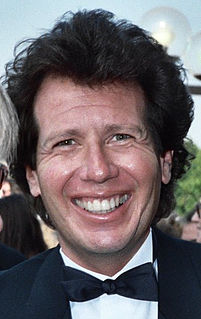A Quote by Friedrich Nietzsche
Rejoicing in our joy, not suffering over our suffering, makes someone a friend.
Related Quotes
A friend of mine said to me not long ago, "Terry you are married to sorrow." I looked at him and said, "No, I am not married to sorrow, I just choose not to look away." To not avert our eyes to suffering is to trust the power of presence. Joy emerges through suffering. Suffering is a component of joy. Whether we are sitting with a loved one dying or witnessing dolphins side-by-side watching the oil burning in the Gulf of Mexico, to be present with the world is to be alive. I think of Rilke once again, "Beauty is the beginning of terror." We can breathe our way toward courage.
Evil is neither suffering nor sin; it is both at the same time, it is something common to them both. For they are linked together; sin makes us suffer and suffering makes us evil, and this indissoluble complex of suffering and sin is the evil in which we are submerged against our will, and to our horror.
That which should distinguish the suffering of believers from unbelievers is the confidence that our suffering is under the control of an all-powerful and all-loving God. Our suffering has meaning and purpose in God's eternal plan, and He brings or allows to come into our lives only that which is for His glory and our good.
The world is full of suffering. Birth is suffering, decre- pitude is suffering, sickness and death are sufferings. To face a man of hatred is suffering, to be separated from a beloved one is suffering, to be vainly struggling to satisfy one's needs is suffering. In fact, life that is not free from desire and passion is always involved with suffering.
I think it is clear to everyone what happens in the Fifth . The rejoicing is forced, created under threat, as in Boris Godunov . It's as if someone were beating you with a stick and saying, "Your business is rejoicing, your business is rejoicing," and you rise, shaky, and go marching off, muttering, "Our business is rejoicing, our business is rejoicing.
The suffering that food animals undergo, the suffering of those who eat them and profit by them, the suffering of starving people who could be fed with the grain that feeds these animals, and the suffering we thoughtlessly impose on the ecosystem, other creatures, and future generations are all interconnected. It is this interconnectedness of suffering, and its reverse, of love, caring, and awareness, that calls out for our understanding.
There is no wrong suffering. There is imaginary, sham, feigned, simulated, pretended suffering. But the assertion that someone suffers for the right or wrong reason presupposes a divine, all-penetrating judgment able to distinguish historically obsolete forms of suffering from those in our time, instead of leaving this decision to the sufferers themselves.
The second noble truth states that we must discover why we are suffering. We must cultivate the courage to look deeply, with clarity and courage, into our own suffering. We often hold the tacit assumption that all of our suffering stems from events in the past. But, whatever the initial seed of trauma, the deeper truth is that our suffering is more closely a result of how we deal with the effect these past events have on us in the present.









































